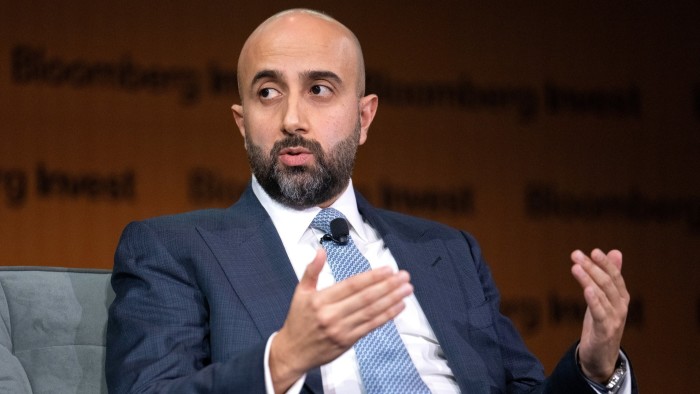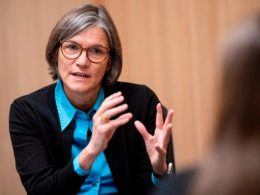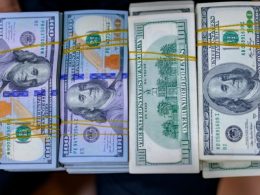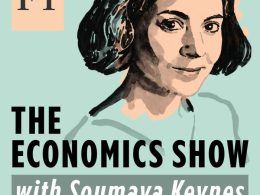This article is an on-site version of our FirstFT newsletter. Subscribers can sign up to our Asia, Europe/Africa or Americas edition to get the newsletter delivered every weekday morning. Explore all of our newsletters here
Today’s agenda: Microsoft poaches Google DeepMind staff; Russian forces in Syria; paying UK CEOs “like football stars”; Big Read on the cost of cyber scams; and Martin Wolf on an era of slow growth
Good morning. We start with Qatar’s $500bn sovereign wealth fund, which plans to deploy its cash more aggressively as it embarks on a quinquennial review of its investment strategy.
What are its plans? The Qatar Investment Authority’s new chief executive told the Financial Times it expected to “do bigger-ticket deals” and invest with “more frequency”. Mohammed Al-Sowaidi said the QIA was bullish on the US, where it has increased its exposure significantly over the past decade, as well as in the UK and Asia, with a focus on technology, artificial intelligence, healthcare, real estate and infrastructure. The fund also plans to build up its offices in the US and Singapore and is “scaling up with third-party managers”.
What’s prompting the moves? An expected petrodollar windfall. Qatar is one of the world’s top liquefied natural gas producers, and overall production capacity is forecast to rise almost 85 per cent by the end of the decade. The IMF estimated in a 2022 report that the expansion would raise the Gulf state’s real GDP by 5.7 per cent by 2027 and add roughly 3.5 per cent of GDP in export receipts a year. The main recipient of the LNG revenues will be the QIA, and Sowaidi said the inflows had the potential to double its size over five years. Here’s more from Sowaidi, including his take on Donald Trump’s tariff plans and Elon Musk.
And here’s what else we’re keeping tabs on today:
-
Economic data: The US has its November consumer price index, while Opec publishes its monthly oil market report.
-
French strikes: Railway workers at SNCF are set to protest against planned changes, including a push for privatisation at the state-owned company.
-
Central banks: Brazil and Canada have interest rate decisions, while Sanjay Malhotra begins a three-year term as Reserve Bank of India governor. For more details on his appointment, read the latest issue of India Business Briefing, the FT’s new newsletter on the world’s fastest-growing large economy.
-
Companies: British American Tobacco has a trading update, while Adobe, Inditex and Tui report results.
Join Financial Times editor Roula Khalaf and other FT experts online at 4pm GMT as they discuss their predictions for the world in 2025. Register here.
Five more top stories
1. Exclusive: Microsoft is poaching staff from Google for its new artificial intelligence consumer health team. AI head Mustafa Suleyman is hiring staff from a similar unit he once led at Google DeepMind, as the rival companies race to create lucrative applications from the cutting-edge technology. Madhumita Murgia has more from London.
2. Russia is holding on to key military bases in Syria even as it pulls back forces from smaller outposts in the country following the overthrow of ally Bashar al-Assad. Satellite imagery showed no signs of a Russian withdrawal from the main naval and air bases it uses as staging points for the Mediterranean and Africa. Read the full story.
-
Corrupt state: The rebel transitional authorities are grappling with a bureaucracy filled with phantom jobs, pervasive graft and a culture of obedience.
-
‘Sterile’ zone: Israel’s defence minister said it wanted to create an area “free of weapons and terror threats” in southern Syria after seizing territory and pounding military targets.
3. Wall Street banks are betting that the blockbuster rally in US stocks will cool next year as investors turn cautious on the AI boom. Ten major banks expect the S&P 500 to rise roughly 8 per cent by the end of 2025, below the index’s historic average annual returns. Morgan Stanley’s chief investment officer said: “We’re fighting . . . euphoria that has helped people buy stocks versus the realities of next year.”
4. Donald Trump has vowed to speed up regulatory approvals for investors spending $1bn or more in the US, a signal that he will address one of developers’ thorniest complaints when he takes office next month. The president-elect’s pledge reflects his plan to move away from the subsidies favoured under Joe Biden to spur more domestic investments through deregulation.
-
Janet Yellen: The Treasury secretary has warned the incoming Trump administration against imposing sweeping tariffs, saying they would lead to higher inflation.
5. British CEOs should be able to be paid like “top-rate footballers” without facing a backlash, billionaire financier Lord Michael Spencer told the FT. The founder of brokerage ICAP said that if the UK hoped to attract the best executives to run some of the largest London-listed companies, it needed to tackle the “political hot potato” of executive pay.
The Big Read
Advancements in AI and the speed of real-time payments have made it easier than ever for scammers to manipulate someone into willingly handing over money, and to make off with it just as quickly. As the problem grows, so has debate between government, banks and technology companies over who should foot the bill.
We’re also reading . . .
-
French politics: The government’s collapse has cast a pall over a slowing economy, extending uncertainty over planned tax rises and grants for businesses.
-
BlackRock: The world’s largest asset manager has bought a bonanza of billionaires, writes Brooke Masters. Can it keep them in line?
-
Tether: A cryptocurrency used by gangs, drug cartels and spies from Iran and Russia has a new friend in the Trump White House: Howard Lutnick.
-
Romania: Authorities are investigating the leader of an armed group linked to far-right, pro-Russian presidential candidate Călin Georgescu.
Chart of the day
Has rapid economic growth in the world’s high-income countries come to an end? Opportunities exist for the UK and its European neighbours, but they must grasp the nettle of economic reform, writes Martin Wolf.

Take a break from the news
An archaeological discovery from a well-preserved tomb in Syria, carbon-dated back to 2400 BCE, could change the origin story of our alphabet, writes Anjana Ahuja.

Thank you for reading and remember you can add FirstFT to myFT. You can also elect to receive a FirstFT push notification every morning on the app. Send your recommendations and feedback to firstft@ft.com
Source link








